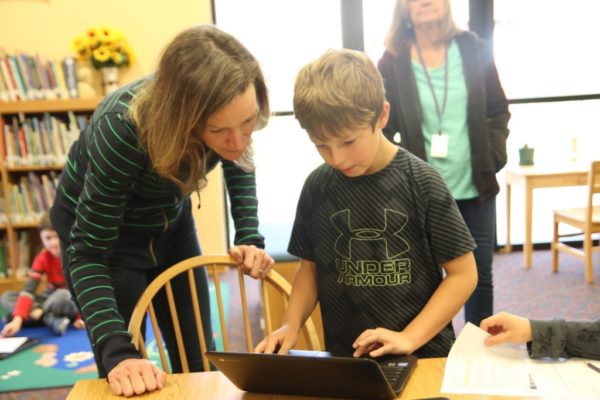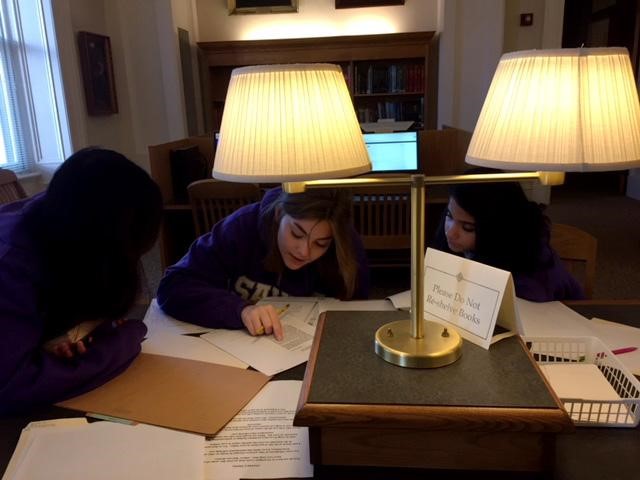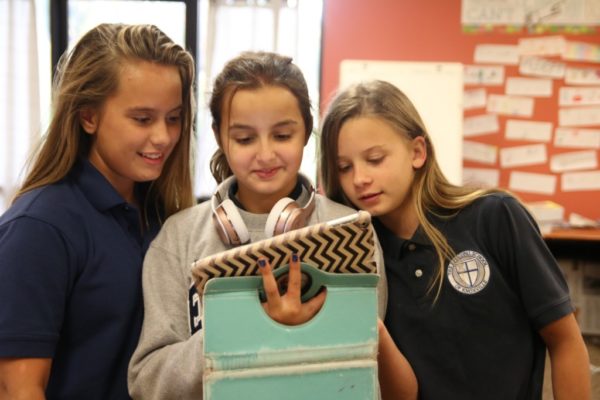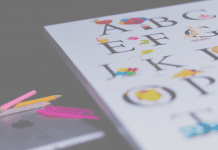Students have more access to news articles now than ever before. They can enter a search term into Google, and thousands of articles on a topic return at their disposal. Young people also encounter news through their social media accounts, with Snapchat’s Discover feature flooding them with information from a variety of sources.
While an abundance of information is often a blessing, it is also important that students know how to discern a credible article from media that offers an extreme or inaccurate interpretation of the subject. As parents and educators, we are challenged to teach our children how to be critical and responsible consumers of news. The end goal is to enable kids to form an opinion based on fact that will subsequently allow them to engage in civil discourse with peers.
 Episcopal School of Knoxville Librarian Miranda Clark has compiled a list of ideas, based on feature articles in the American Association of School Librarians’ publication, Knowledge Quest Vol. 47, No. 1, for how to teach children to discern authentic news from articles that contain propaganda or fabricated information. These guidelines not only serve as teachable moments, but also provide jumping off points of discussion around issues important to your child.
Episcopal School of Knoxville Librarian Miranda Clark has compiled a list of ideas, based on feature articles in the American Association of School Librarians’ publication, Knowledge Quest Vol. 47, No. 1, for how to teach children to discern authentic news from articles that contain propaganda or fabricated information. These guidelines not only serve as teachable moments, but also provide jumping off points of discussion around issues important to your child.
1) Introduce students to the variety of resources available to them to find news and information.
Many students find their news on social media sites like Snapchat and Instagram, both of which feature reliable and questionable sources. A useful resource is this infographic from Ad Fontes Media that attempts to break down media sources from a reliability standpoint. Know that each interpretation of reliability is subjective, so critically consider this resource in conjunction with further research.

2) Provide students with guidelines to evaluating news sources. They should consider:
–Content: Do I understand the fundamental ideas relevant to this news article? (e.g. Before I read an article about the Paris protests, do I understand the French system of government?) What else do I need to understand before I form my opinion?
-Motivation: What are my own biases? How can I recognize them.
-Reputation: What is the reputation of the author or news outlet?
-Confirmability: Can I confirm the information elsewhere? (https://news.google.com)
 3) Consider having students reference an acronym that helps them determine the reliability of the information they are reading.
3) Consider having students reference an acronym that helps them determine the reliability of the information they are reading.
-For younger students, BAT is useful to remind students to look for Bias, Author, and Timeframe. California State University, Chico developed an acronym for older students to reference: CRAAP. Students read an article critically with the Currency, Relevancy, Authority, Accuracy, and Purpose of the author’s writing in mind.
4) As students conduct research, teach them to use better search terms.
-Talk to the student before they start their search to get them thinking about keywords relevant to their topic.
-Show kids where they can find an online thesaurus.
-Do an example search with the student to demonstrate how results change when search terms are modified.
-Encourage students to do background reading on the topic on Wikipedia, which will also help them generate pertinent keywords.
-Make sure that selecting search terms is an ongoing conversation as students conduct research in different classes and for different purposes.
5) Students should be taught to read both laterally and vertically across a topic in order to distinguish fact from fiction.
When researching a topic, students need to read multiple sources on the same subject to get the most accurate information. Reading a variety of sources helps students determine if the article they’ve found is trustworthy, and gives them a breadth of understanding on the issue.
6) Prompt students to use newspapers that have Newspapers in Education (NIE) curricula added to their sites. This site links to newspapers that implement NIE.

7) Teach kids phrases to have a conversation about news that contextualizes their opinions.
Train kids to preface their opinion before stating it: “In my research, I found out that…” or “I read an article that said…” These statements provide a way to diffuse news gossip and hostile conversations, since students are learning to think about the context of the information they’re about to share and are mindful to reference an article or source.
Providing students with the tools to distinguish accurate from unfair interpretations of news gives them the foundation to engage in respectful discourse intended to enhance understanding. By helping a student understand where he or she stands on an issue, based on best practice research strategies, the student is empowered to discuss a topic with a peer in a manner worthy of the term civil discourse. Armed with accurate information, kids can share their opinions modestly and appreciate another’s experiences, which keeps a conversation from turning hostile.



















